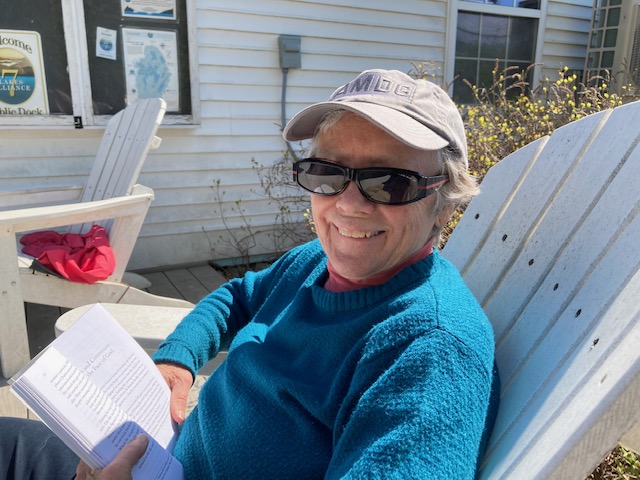
Kathryn Swegart explains why we should never put off the impulse to express our gratitude.
It happened on Monday, May 16, 1988 at 7:00 in the evening. On the surface, all appeared normal. Dishes were in the sink. The kids were in their pajamas waiting for a bed-time story. Hubby was in charge as I prepared to rush out the door to a meeting at church. I had my hand on the doorknob and abruptly stopped.
May 16 was my wedding anniversary, an event we had celebrated over the weekend. Memories flooded back to me: a Cape Cod wedding filled with sacramental grace, tulips, cherry blossoms, and sunshine. I thought of my father in his tuxedo escorting me down the aisle and dancing with me at the reception.
I took my hand off the doorknob and picked up the telephone to call my parents. Dad answered.
“Hi Dad,” I said.
“Hi Kath,” he replied.
“Today is my wedding anniversary and I wanted to thank you for paying for the wedding. It was a beautiful day, and I am very happy.”
“Oh, you are welcome. Thanks for calling.”
That was the last time I talked to my father. The next morning, my mother discovered his lifeless body in bed. He had been working on a crossword puzzle and passed away peacefully.
In the pain of grief, I found solace in that brief conversation with Dad, a feeling that lingers three decades later. Gratitude is powerful. Now science tells us so.
“The limits to gratitude’s health benefits are really in how much you pay attention to feeling and practicing gratitude,” says neuroscientist Glenn Fox, a gratitude expert at the University of Southern California.

Yes, you read that right. Gratitude is so important to our health that scientists are studying the effects. People who notice the little things in life and appreciate the positive in the world and other people live healthier lives. A paper published in the Clinical Psychology Review reported decreases in depression, stress, and improved sleep patterns.
Once again, God proves himself the mighty psychologist. The Old Testament is filled with songs of praise (over 100 times by one calculation). Psalm 136 proclaims,
Praise the LORD, for he is good; for his mercy endures forever. (Psalm 136:1)
St. Paul teaches us in the Letter to the Thessalonians:
Rejoice always. Pray without ceasing. In all circumstances give thanks, for this is the will of God for you in Christ Jesus. (Thessalonians 5: 16-18)
My mother always taught me to be thankful for the little things. I try to develop a sense of wonder at a sunrise, a flower, or even a raindrop.
Dr. Fox recommends “mindful gratitude journaling.” Keep a gratitude journal by your bedside and write down lists in which you count your blessings. Send thank-you notes. Make it part of your daily routine. He states, “It’s similar to working out, in that the more you practice, the better you get. The more you practice, the easier it is to feel grateful when you need it.”
Pick up the telephone and thank people for small (or large) favors. It might be a gesture that you will never forget.
Copyright 2022 Kathryn Swegart
Image: Canva Pro
About the Author

Kathryn Swegart
Kathryn Griffin Swegart and her husband raised three children on a small farm in rural Maine. Kathryn, a professed member of the Secular Franciscan Order, is the author of the bestseller Heavenly Hosts: Eucharistic Miracles for Kids Visit her website at KathrynSwegart.com.


.png?width=1806&height=731&name=CatholicMom_hcfm_logo1_pos_871c_2728c%20(002).png)
Comments